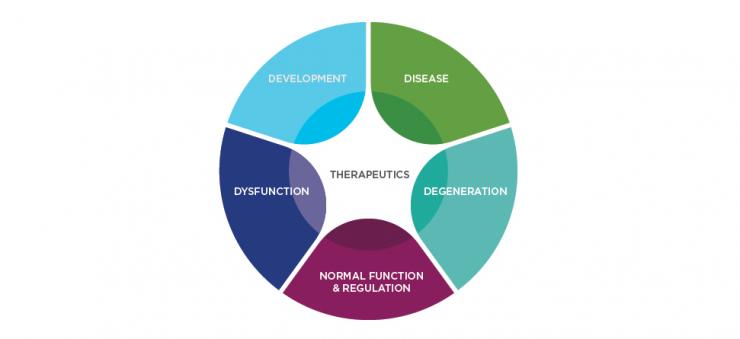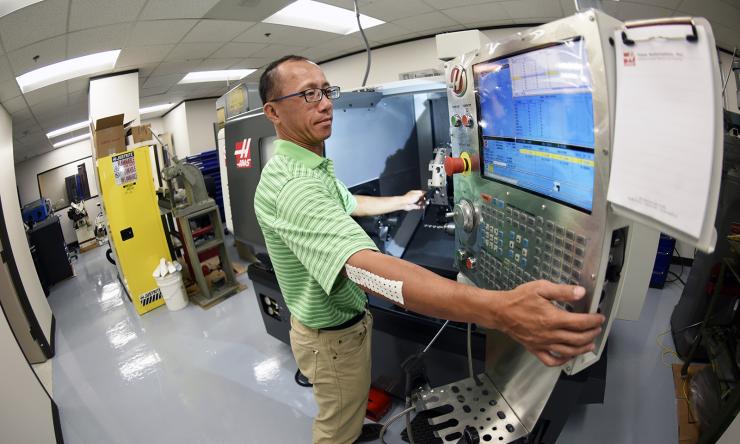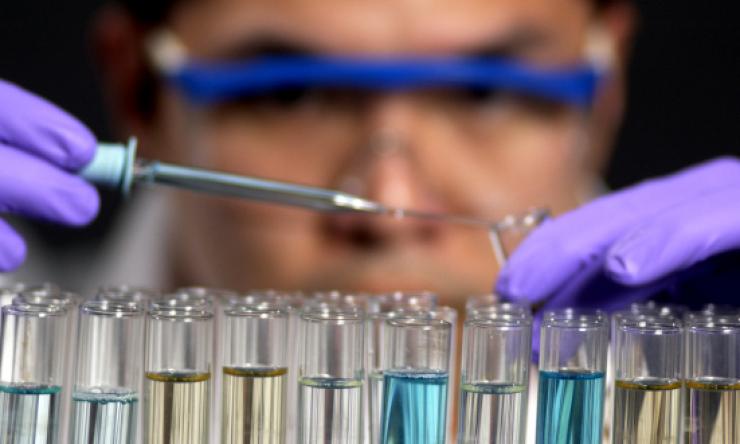Working at the interface of developmental biology, physiology, health and disease, our researchers utilize diverse disease models to understand the biology of human diseases that can impact all stages of life -- from hereditary and congenital birth defects to degenerative diseases of old age -- and develop diagnostic and therapies to treat them.
Find Faculty Whose Interests Match Yours
Explore faculty profiles organized based on their research.
"I want to go into a laboratory medicine career that integrates medicine, research and business. There is no way I could have imagined this path if it weren't for seeing how these elements work together in the Texas Medical Center." - Julia Wang, M.D./Ph.D. Student
Research Model

Our faculty use animals as diverse as slime molds, fruit flies, nematode worms, slime molds, frogs, fish, chickens, mice and humans to understand and model human diseases and to develop diagnostics and therapies to treat them. Many of our faculty make use of concepts in developmental and molecular biology, genetics, physiology, imaging, stem cells and regenerative medicine, but we also emphasize an understanding of how tissue systems function in the adult.
We take advantage of the resources of the world's largest medical center to connect basic researchers and clinicians so that research questions are addressed through multiple disciplines and perspectives.
You will have the opportunity to explore all aspects of disease, from fundamental biological principles to the design and development of therapeutics.
Working within our research model, our interdisciplinary faculty pursues diverse areas of research. While many of these areas of focus overlap with those of other programs at BCM and elsewhere, what makes our program unique is our approach.
Our approach includes:
- Use of a wide range of animal model systems to study the biology underlying human diseases
- Studying how animals normally develop to gain unique insights into the molecular and genetic basis of congenital diseases and birth defects
- Use of stem cell technology that allows us to develop strategies for tissue regeneration and cell replacement
- Development and testing of therapeutic strategies to treat disease
Visit our Featured Faculty Research page for a few examples of how our faculty apply this model in their research.
Research Resources: Advanced Technology Cores
Advanced technology core laboratories provide state-of-the-art instrumentation and technologies as well as consultation on experimental design, data analysis and training. Through the cores, you will not only gain access to tools and techniques that support your research, you will also receive training and mentorship in how to leverage these tools to develop innovative approaches to scientific challenges.
Research Resources
As you begin your career in research it is impossible to predict where your investigations will need. Therefore it is essential to have access to diverse resources, not only equipment but also experienced individuals available to help you identify the resources you need and master their use.
 Credit
Credit
Faculty Research
Andrew Sikora, Ph.D., M.D., describes how clinical trials are demonstrating the amazing power of immunotherapy to train the patient’s own immune system to destroy cancer cells.










